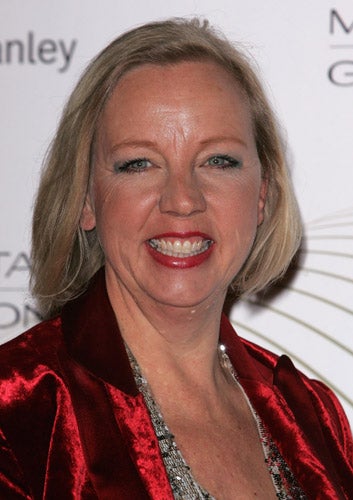Passed/Failed: An education in the life of the entrepreneur and panellist on BBC2's 'Dragon's Den', Deborah Meaden
'At age six I set up a flower stall'

Your support helps us to tell the story
From reproductive rights to climate change to Big Tech, The Independent is on the ground when the story is developing. Whether it's investigating the financials of Elon Musk's pro-Trump PAC or producing our latest documentary, 'The A Word', which shines a light on the American women fighting for reproductive rights, we know how important it is to parse out the facts from the messaging.
At such a critical moment in US history, we need reporters on the ground. Your donation allows us to keep sending journalists to speak to both sides of the story.
The Independent is trusted by Americans across the entire political spectrum. And unlike many other quality news outlets, we choose not to lock Americans out of our reporting and analysis with paywalls. We believe quality journalism should be available to everyone, paid for by those who can afford it.
Your support makes all the difference.Deborah Meaden, 50, joined the BBC2 series Dragons' Den three years ago. She is the financial backer of Play the Field, the classical music festival held near Glastonbury. She chairs the NSPCC's south-west Child's Voice Appeal. Her book Common Sense Rules came out in May.
My role-playing games were not about being a shopkeeper but about having my own business. At six or seven, I set up a little stall, with flowers picked from our garden, at the bottom of the drive. Cars couldn't see me until they had passed, so I moved the flowers to my neighbour's drive.
I went to a tiny school in Minehead. Somerset. I remember trying to read, not being the best in the class – and not liking that. My parents, who worked in the leisure industry, had to move because of their work. When I was seven I was sent to boarding school, The Hall at Wincanton. I hated it, absolutely hated it. But I got over hating it; I had a lot of friends and my reports said I was lively and enthusiastic.
When I was seven they thought I was going to be a child prodigy at the piano, so I went every Saturday to Trinity College of Music in Marylebone. Nothing is an imposition when I'm engaged, but suddenly this became someone else's agenda. Do I play the piano now? No, not in front of other people.
At nine I went to Leaden Hall in Salisbury, a feeder school for St Godolphin's, where I moved at 11. The problem with boarding is that you lose your independence. If there are silly rules, I don't buy into them and I'm a nightmare! It was very rigid. We were in bed by 8pm. After the "silence bell" we had to be silent for half an hour and were asleep by 8.30.
I responded well to the good teachers. I loved Miss Chiven, the English teacher, who was very firm and fair. Her report said: "Answers very intelligently in class." But the Latin teacher wrote – same term, same report – "Deborah must learn that insolence is not attractive." I'd gone from top of the class to doing poorly because the teacher was not able to engage me. The head called me in and said: "You must never mistake kindness for weakness." I'm not sure it was relevant in this case – but I've always remembered it.
I was there for less than three years. My older sister was expelled and I thought, "I didn't know that was an option!" It was beginning to dawn on my parents that boarding was not a good idea. I went to Trowbridge High School, a grammar school, in the last year before it turned into a comprehensive. It was mixed, less stuffy – and I could go home and have a much free-er life. I had a pony. I flourished. I got eight O-levels at pretty good grades.
Trowbridge had introduced commerce as an O-level and a business course was a natural choice. I wanted to leave home, so found a course that my local college didn't do. I didn't think it at the time but the OND course in business studies at Brighton Tech was useful; for example, my business letters are short, to the point, not flowery and don't repeat themselves.
You had to have a minimum of 70 per cent attendance and one term I didn't, which meant you had to pay back to the council the fees it had paid for you. I intercepted the letter to my parents and paid the money myself by waitressing and washing up. I didn't tell my parents until many years later.
Join our commenting forum
Join thought-provoking conversations, follow other Independent readers and see their replies
Comments